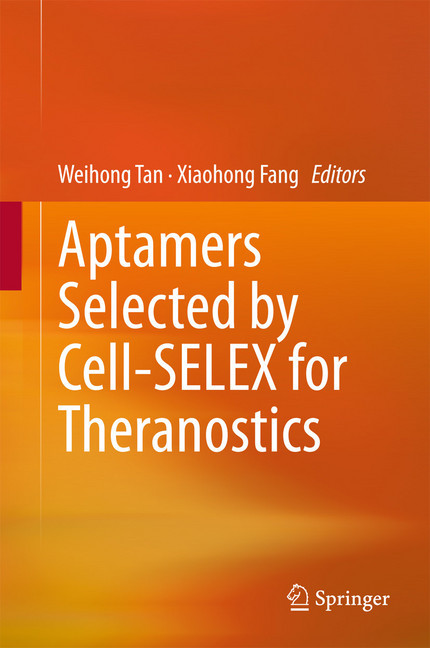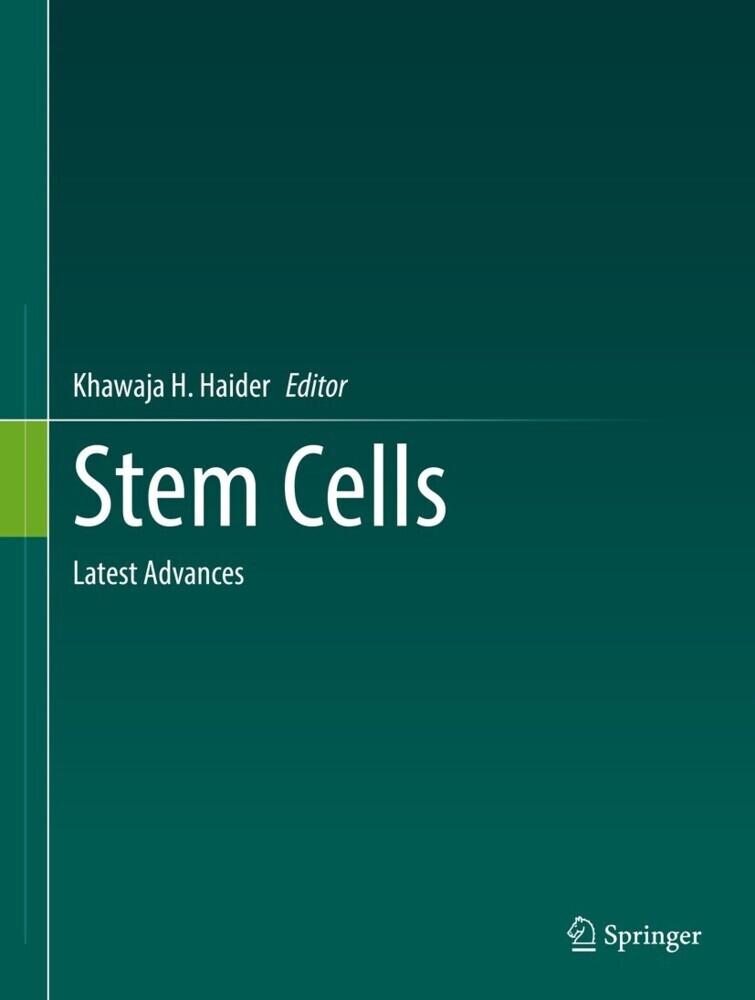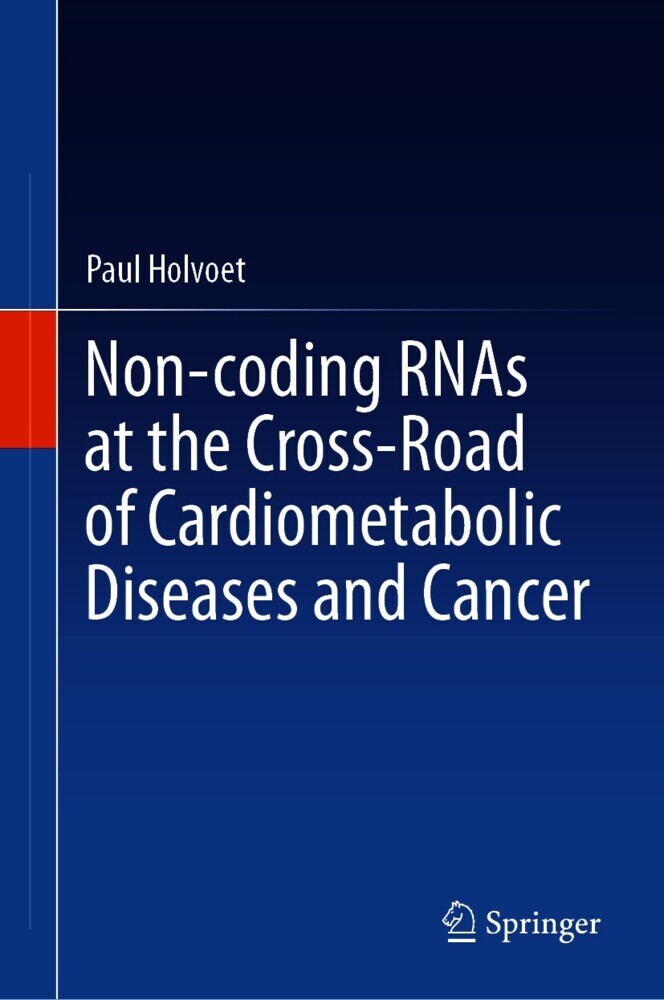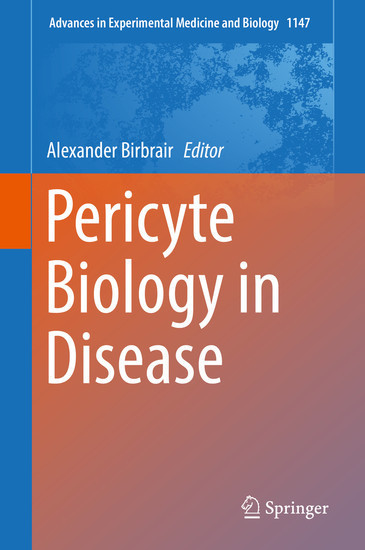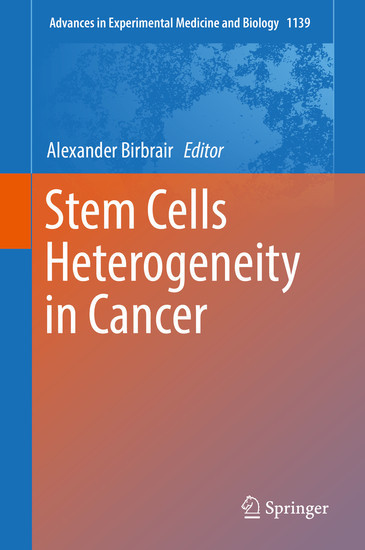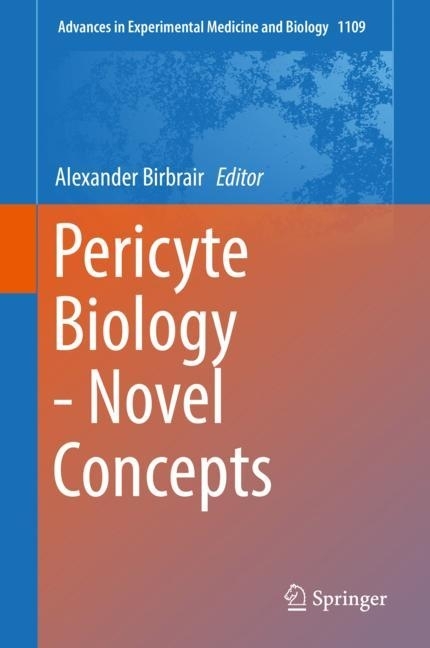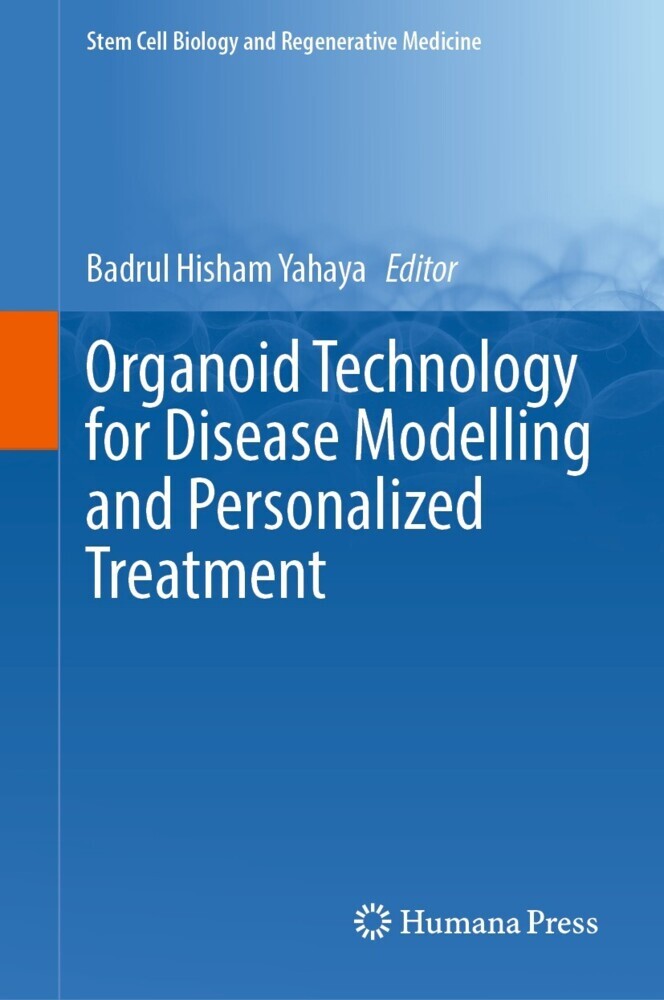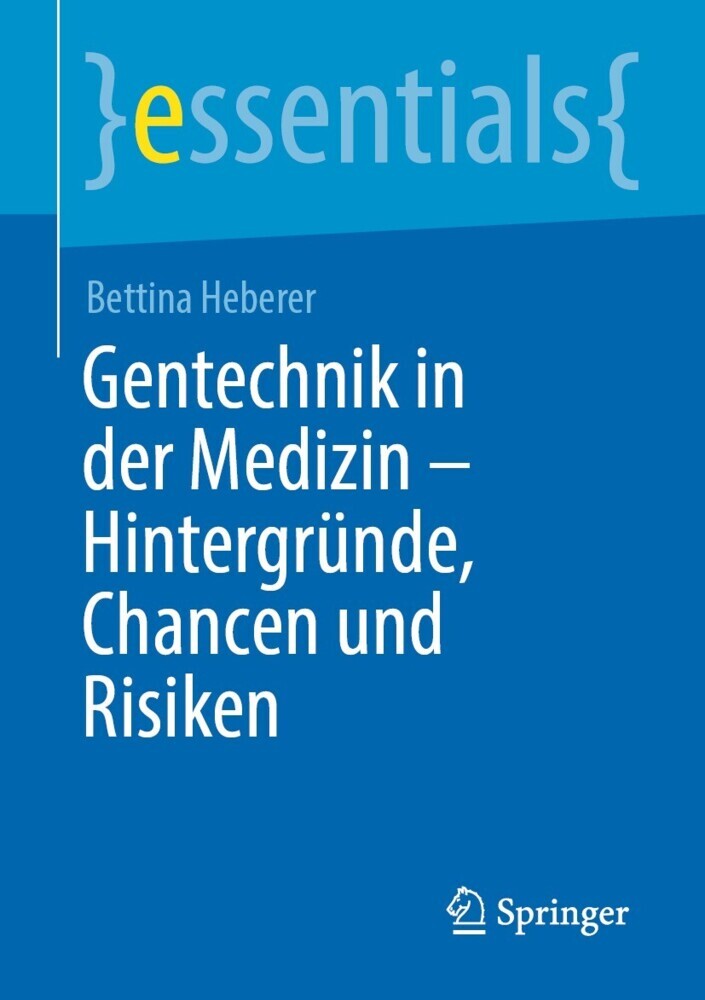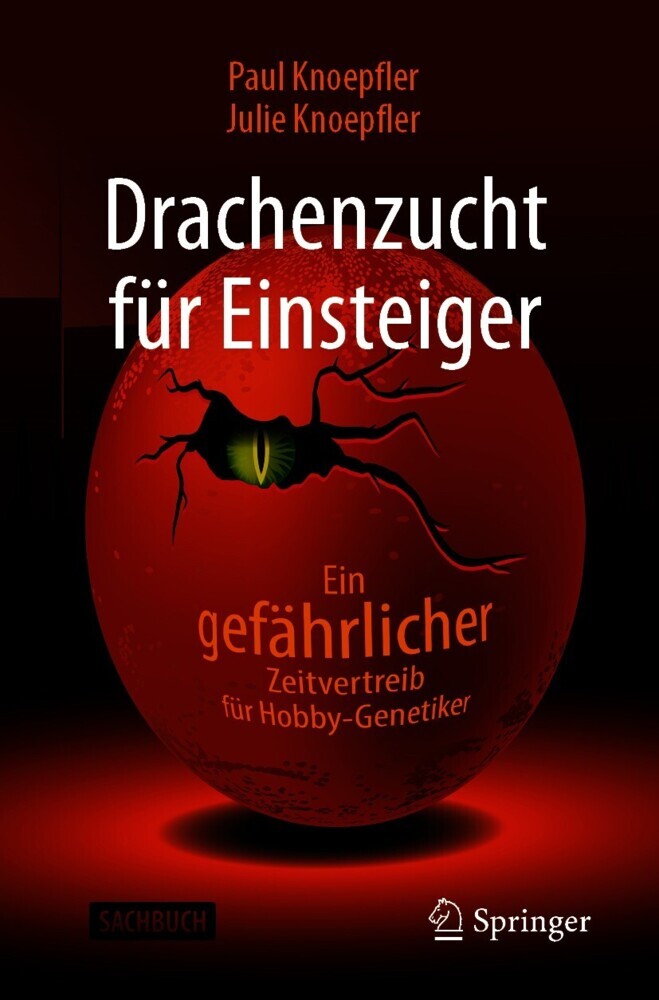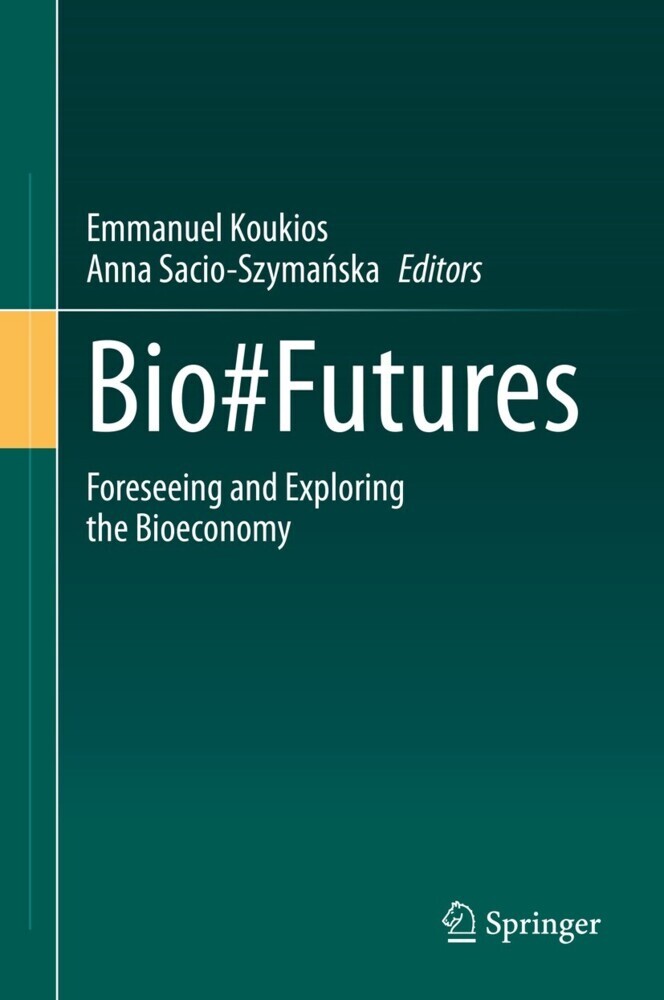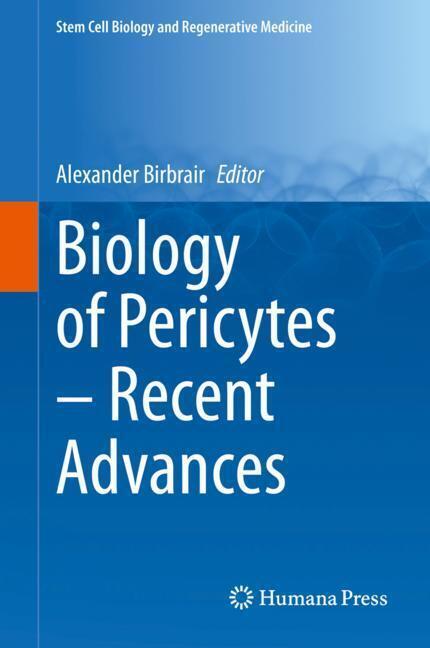Aptamers Selected by Cell-SELEX for Theranostics
This edited volume describes cell-SELEX as the fundamental tool used to generate aptamer molecules for a wide range of applications in molecular medicine, bioanalysis and chemical biology. Easily integrated into the natural heterogeneous cell matrix, aptamers can be effectively used in theranostics, bioanalysis, environment detection and biomedical studies. The book gathers reviews that reflect the latest advances in the field of aptamers and consists in fourteen chapters demonstrating essential examples of these aptamers and aptamer-nanomaterial assemblies, depending on the types of applications and biological systems. It also includes a separate chapter on the utilization of aptamers in real clinics and what will be required to achieve this significant goal. The book will be both appealing and useful to a broad audience, including biologists, bioscientists, and clinicians whose interests range from chemistry and biomedical engineering to cell and molecular biology and biotechnology.
Weihong Tan is a Distinguished Professor of Chemistry and Biomedical Engineering at Hunan University, China and also a University of Florida Distinguished Professor and V.T. and Louis Jackson Professor of Chemistry at the University of Florida, USA.
Xiaohong Fang is a Professor at the Institute of Chemistry, Chinese Academy of Sciences, China.
Prof. Weihong Tan received his Ph.D. in physical chemistry from the University of Michigan, Ann Arbor in 1993. He was then named a Distinguished Postdoctoral Researcher by the US-DOE and worked at the Ames Laboratory. In 1996, he joined the University of Florida as an assistant professor of chemistry and was promoted to associate professor (2001), full professor (2003) and distinguished professor (2012). He was named a University of Florida Research Foundation Professor (2004) and V. T and Louis Jackson Endowed Professor (2008 till now). Prof. Tan is also a professor of biomedical engineering and chemistry at Hunan University. Tan's group has developed research programs in chemical biology, bioanalysis, molecular engineering, bionanotechnology and biomedical engineering. Currently, the Tan group is working on synthesizing a variety of DNA probes for biomedical studies and for DNA nanomotors, in developing new nanomaterials and bionanotechnology for bioanalysis, molecular imaging and drug delivery and in elucidating the molecular basis of diseases such as cancers using a chemical biology approach. His work has been recognized by many awards, including the Pittcon Achievement Award in 2004 and the ACS Florida Award in 2012 for outstanding contributions to chemical sciences. Prof. Tan has published extensively in the field of bioanalysis, chemical biology, molecular engineering and bionanotechnology with more than 390 papers with an H-index of 88 and more than 22,500 citations. He also owns 24 patents. He is selected as 'The World's Most Influential Scientific Minds 2014'.
Prof. Xiaohong Fang received her Ph.D. degree in analytical chemistry at Peking University (China) in 1996. After one-year postdoctoral work at the University of Waterloo (Canada), she then worked as a research associate at the University of Florida (USA) from 1998 to 2001 in Prof. Weihong Tan's group. She was recruited to the Chinese Academy of Sciences (CAS) under the 'Hundred Talents Program' in December 2001 and became a professor of Chemistry at the CAS Key Laboratory of Molecular Nanostructures and Nanotechnology, Institute of Chemistry. Her main research interest is the development of new biophysical and bioanalytical methods for real-time protein detection and for the study of biomolecular interaction at the single molecule level. This includes: single-molecule imaging of protein dynamics in living cells, biomolecular interaction study by single-molecule force microscopy, novel aptamer-based molecular probes for real-time protein recognition and nanobiosenor development. She has published over 150 papers and has 18 grante
Weihong Tan is a Distinguished Professor of Chemistry and Biomedical Engineering at Hunan University, China and also a University of Florida Distinguished Professor and V.T. and Louis Jackson Professor of Chemistry at the University of Florida, USA.
Xiaohong Fang is a Professor at the Institute of Chemistry, Chinese Academy of Sciences, China.
Prof. Weihong Tan received his Ph.D. in physical chemistry from the University of Michigan, Ann Arbor in 1993. He was then named a Distinguished Postdoctoral Researcher by the US-DOE and worked at the Ames Laboratory. In 1996, he joined the University of Florida as an assistant professor of chemistry and was promoted to associate professor (2001), full professor (2003) and distinguished professor (2012). He was named a University of Florida Research Foundation Professor (2004) and V. T and Louis Jackson Endowed Professor (2008 till now). Prof. Tan is also a professor of biomedical engineering and chemistry at Hunan University. Tan's group has developed research programs in chemical biology, bioanalysis, molecular engineering, bionanotechnology and biomedical engineering. Currently, the Tan group is working on synthesizing a variety of DNA probes for biomedical studies and for DNA nanomotors, in developing new nanomaterials and bionanotechnology for bioanalysis, molecular imaging and drug delivery and in elucidating the molecular basis of diseases such as cancers using a chemical biology approach. His work has been recognized by many awards, including the Pittcon Achievement Award in 2004 and the ACS Florida Award in 2012 for outstanding contributions to chemical sciences. Prof. Tan has published extensively in the field of bioanalysis, chemical biology, molecular engineering and bionanotechnology with more than 390 papers with an H-index of 88 and more than 22,500 citations. He also owns 24 patents. He is selected as 'The World's Most Influential Scientific Minds 2014'.
Prof. Xiaohong Fang received her Ph.D. degree in analytical chemistry at Peking University (China) in 1996. After one-year postdoctoral work at the University of Waterloo (Canada), she then worked as a research associate at the University of Florida (USA) from 1998 to 2001 in Prof. Weihong Tan's group. She was recruited to the Chinese Academy of Sciences (CAS) under the 'Hundred Talents Program' in December 2001 and became a professor of Chemistry at the CAS Key Laboratory of Molecular Nanostructures and Nanotechnology, Institute of Chemistry. Her main research interest is the development of new biophysical and bioanalytical methods for real-time protein detection and for the study of biomolecular interaction at the single molecule level. This includes: single-molecule imaging of protein dynamics in living cells, biomolecular interaction study by single-molecule force microscopy, novel aptamer-based molecular probes for real-time protein recognition and nanobiosenor development. She has published over 150 papers and has 18 grante
| ISBN | 9783662462263 |
|---|---|
| Artikelnummer | 9783662462263 |
| Medientyp | E-Book - PDF |
| Auflage | 2. Aufl. |
| Copyrightjahr | 2015 |
| Verlag | Springer-Verlag |
| Umfang | 352 Seiten |
| Sprache | Englisch |
| Kopierschutz | Digitales Wasserzeichen |

